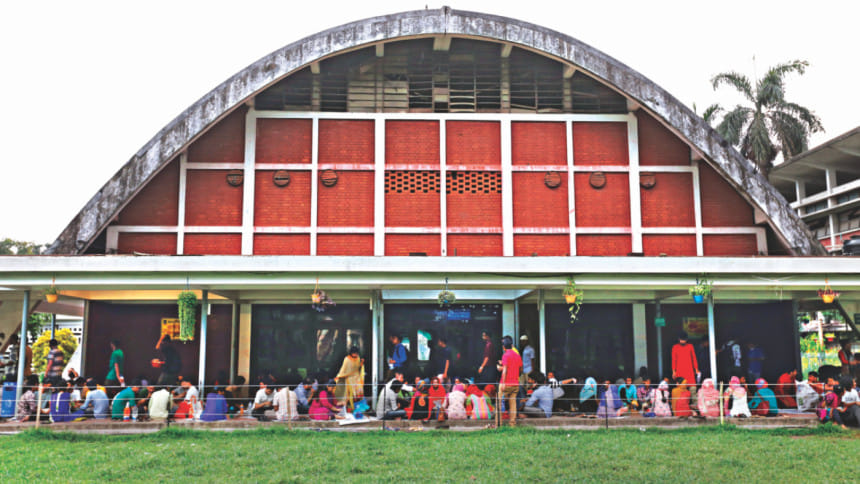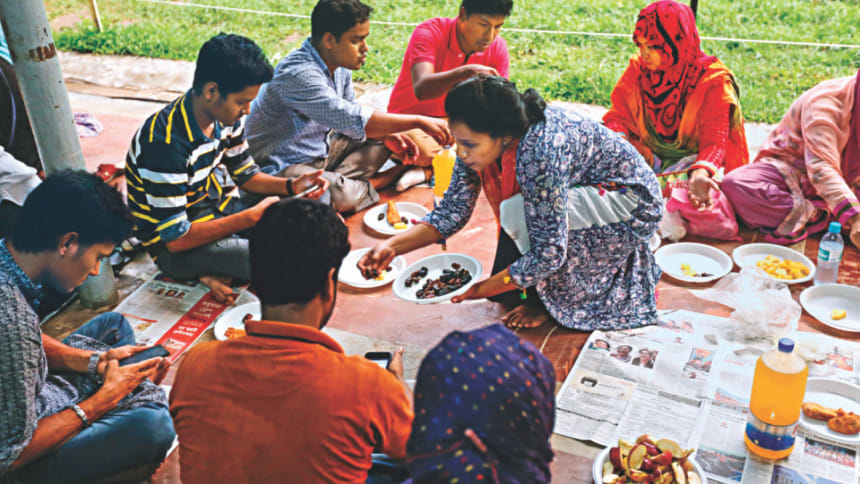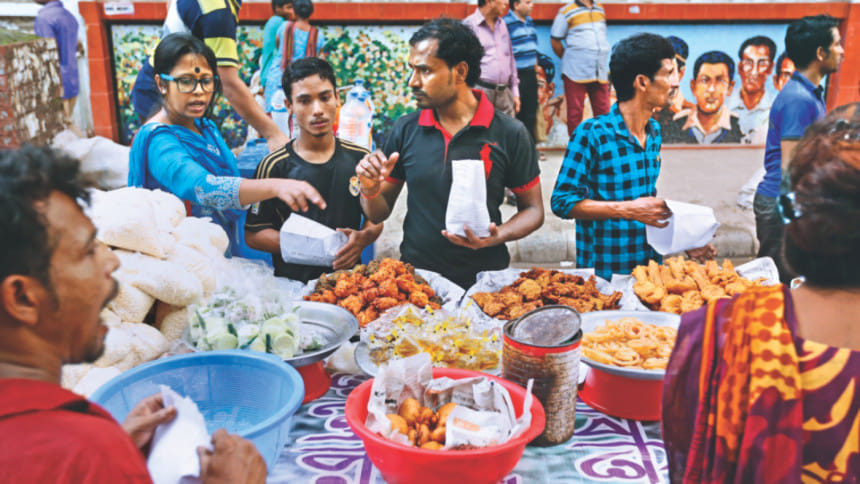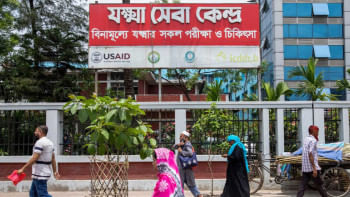Where students break their fast

While at present there are a lot of options in terms of iftar items, students tend to have their own cheaper alternatives within and around their respective campuses. Students from Dhaka University (DU), Bangladesh University of Engineering and Technology (Buet) and Dhaka Medical College (DMC) flock the food stalls and canteens available in that area to break their fast without having to spend too much money on food.
“Although the food at the hall canteens is not exactly healthy or particularly appetising, it is cheap and it is what's available to us at all times. It wouldn't make sense to spend too much on iftar every day,” said Amina, a chemistry student of DU, staying at Sufia Kamal Hall.
Most girls living in the halls on the campus tend to break their fast at the respective hall canteens, where food is much cheaper compared to department canteens.

In most halls for males, students tend to gather at the common room area and share iftar. This includes Bijoy Ekattar Hall, Mohsin Hall, Shahidullah Hall and others.
The DMC student canteen, Palashi Mor, Department of Math canteen, TSC, IBA canteen and Hakim Chattar are among the more frequented iftar venues for many. At almost all of these, however, the variety is limited and the quality questionable. But the students here find joy in having iftar with friends especially when they are away from family.
“We usually go near Bakshi Bazar with our friends to have iftar. The food is obviously not like what we had at home but sharing a meal with friends makes up for the lack in variety or quality,” said Mohammad Farhad, a Malaysian citizen studying at Dhaka Medical College (DMC).
Near Palashi Mor, students from Buet halls throng the food stalls and the popular local juice bar to buy iftar and take it back to the halls. But after the first week of Ramadan, sales have slowed down because most of the students have left the halls after their exams had ended.
While students in and around DU would spend up to Tk 80-100 a day on iftar, students living in halls have a daily budget of Tk 40-50. Those who stay in halls tend to have iftar on the campus every day while other students, depending on class schedule, may have iftar 4-5 days a week or even once or twice throughout the entire month of Ramadan.

In areas like TSC and Suhrawardy Udyan, around 10-15 university student organisations have iftar in large groups every day. These include various DU clubs and groups. Other than that, Curzon Hall, Arts Building, DUCSU, Senate Building, Mall Chattar are usually packed with people from various inter-departmental or departmental organisations all having iftar together.
“Most students leave by the 15th of Ramadan, unless they stay back for part-time work or to attend department/batch iftar parties which take place on campus or at restaurants nearby,” said Tanvir, a marketing student at DU.

 For all latest news, follow The Daily Star's Google News channel.
For all latest news, follow The Daily Star's Google News channel. 



Comments